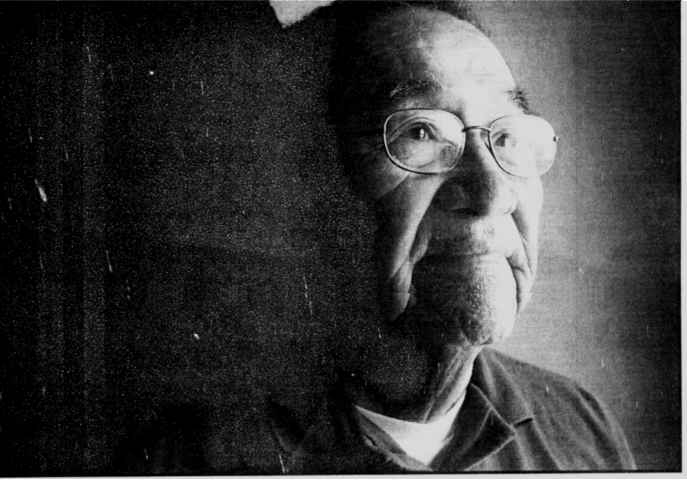
50 Years Ago: Sam Billison removed from public service director position

Sam Billison

Sam Billison
So what were Navajos talking about as 1965 began?
Surprisingly enough, it wasn’t the fight between the Old Guard and supporters of the current chairman, Raymond Nakai. It wasn’t even the council’s decision to remove most of Nakai’s powers.
Instead, it was a minor controversy that kind of snowballed.
It all centered around Sam Billson, director of the tribe’s public service director. This is the Billison who ran against Nakai and Paul jones just two years before and who had received a lot of support for his platform to improve education on the reservation.
Here is what Marshall Tome, editor of the Navajo Times, had to say about why Billison was removed from his position.
“The reason why Sam Billison, public service director for the Navajo Tribe, was terminated on January 8, 1965. Records show that Mr. Billison was terminated on a similar violation under the past administration.
“He received $210 as Kinlichee Chapter president for the month of October. This is contrary to the Navajo Tribal Code No. ACD-173-S9 and is a definite violation of personnel policies and procedures adopted in 1959.”
Billison had a lot of support within the tribal government with many arguing that this was such a minor offense that he should have received at the most, a three suspension, or just a reprimand in his personnel record.
They pointed out that other employees have done the same thing with no punishment and for many, it looked like tribal politics at its worst.
Maurice McCabe, who was in charge of hiring and firing, appointed Leo Haven to the position on an interim basis.
Haven, who had worked for 13 years for the Bureau of Indian Affairs before going over to the tribe, issued the following statement to the Times: “On my honor, I will do my best to do my duty to God, my Navajo people and my country and to obey the tribal policies, to help all of my Navajo people at all times and to keep myself physically strong, mentally awake and morally straight.”
In the everyone makes mistakes column, the Navajo Times this week apologized to Jane Lewis of Thoreau for an article published in a recent issue of the paper.
Lewis had filed to be on the board of the Gallup-McKinley Board of Education and the Times had published an article about her, a portion of which stated that “she has lied in McKinley County.”
The Times said the sentence should have read: “She has lived in McKinley County.”
Norman Littell, who was general counsel to the tribe, reported that three of the four attorneys working for the tribe’s legal department, had submitted their resignation in protest of recent actions by Secretary of the Interior.
The Navajo Tribal Council, during its budget deliberations a few months before had given all the tribal attorneys a fairly big raise of about 10 percent but Udall had singled out these raises and rejected them when he had approved the tribal budget for the following year.
Littell said this was part of an effort by Udall to close down the tribe’s legal department so it would hire people who were not aligned with him.
Littell said two of the three had gone to work for the tribe’s legal aid department, which had been looking for attorneys who were willing to work for low salaries and didn’t mind living in Window Rock. At the same time, Spencer Johnson, the legal department’s fourth attorney, agreed to stay on and the tribe hired Woodrow Snead, a recent graduate of Harvard and a Cherokee Indian, to help him out.
Littell said Udall took the action to reduce his power.
Annie Wauneka, probably the most honored Navajo woman of her generation, was back in the news again this week, not for anything special that she had done but because of her friendship with the country’s president, Lyndon B. Johnson.
Johnson was inaugurated as U.S. president on January 19, 1965 and shortly after the event he went with his wife, Lady Bird, to the National Gallery of Art where he shook the hands of 5,000 women who had been invited from throughout the nation for their work to help others.
One of those 5,000 was Wauneka who had been given the Presidential Medal of Freedom. A member of the Navajo Tribal Council, Wauneka received a personal invitation from the Johnsons to attend the various inauguration events.
Nakai, a fervent Johnson supporter, was also attending inauguration events but except for the Times, no one seemed to care. As for Wauneka, every paper in the area was reporting her visit to Washington, D.C. for the event.








 Highway 264,
Highway 264, I-40, WB @ Winslow
I-40, WB @ Winslow